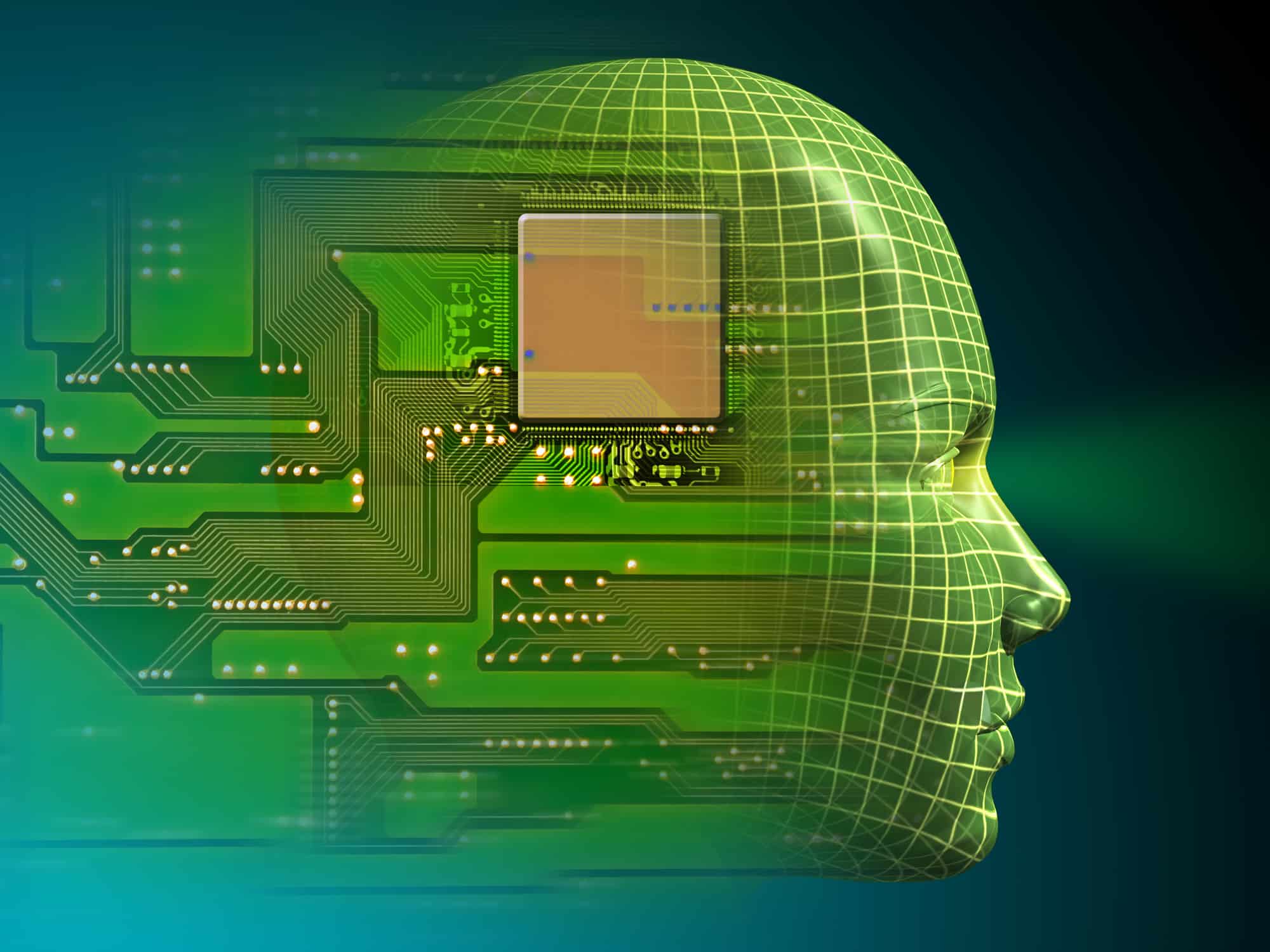The power of Artificial Intelligence (AI) has triggered massive transformations across diverse sectors, and healthcare stands out as one of the key domains reaping AI’s benefits. From disease detection to treatment personalization, AI exhibits vast potential, promising a seismic shift in patient care and overall healthcare delivery.
AI Applications in Healthcare
In the current landscape, AI applications in healthcare are expansive and increasingly sophisticated. One of the most prominent uses lies in diagnostics. For instance, Google’s DeepMind has developed an AI system that can detect over 50 eye diseases as accurately as human experts. This sort of deep learning AI, which learns from a wealth of data to make predictions or decisions without explicit programming, has also shown promising results in detecting breast and lung cancer, often earlier than traditional methods.
Machine learning algorithms can analyze complex medical data, such as MRI scans, genomics, and even patient histories, and detect anomalies more quickly and accurately than human doctors in certain cases. IBM’s Watson for Health, for instance, uses natural language processing and machine learning to analyze vast amounts of medical literature and patient data, aiding in quicker, more accurate diagnoses. AI also shines in radiology, where deep learning models, trained on thousands of images, can identify cancers and brain tumors with impressive accuracy, often at earlier stages than human practitioners.
In terms of monitoring, AI is making significant headway. Mobile health apps and wearables can track vitals such as heart rate, blood glucose levels, and even sleep patterns, facilitating 24/7 monitoring and alerts that can be sent to caregivers for analysis and quick action. Moreover, AI can detect deviations from a patient’s baseline, prompting immediate medical intervention. This continuous surveillance has remarkable implications for chronic disease management, helping monitor conditions like diabetes, heart disease, or Parkinson’s closely and respond to changes swiftly.
AI’s power extends to proactive prevention as well. Predictive analytics tools can use health data to identify patients at risk of developing a condition, such as heart disease or diabetes, facilitating earlier intervention. These tools can analyze factors such as family history, lifestyle habits, and genetic markers to provide risk assessments, enabling healthcare professionals to formulate preemptive strategies. This shift from a reactive to a proactive model of care can significantly improve health outcomes and increase life expectancy.
Drug discovery is another area where AI can make important contributions. Platforms such as Atomwise use AI algorithms to predict the effectiveness of a potential drug, significantly reducing the time and cost involved in traditional drug development. Similarly, AI has been instrumental in understanding and managing the COVID-19 pandemic. It has helped in predicting virus spread, identifying vulnerable populations, developing vaccines, and managing patient care.
AI and the Healthcare Workforce
AI can be a significant ally in addressing the shortage of healthcare professionals. AI-powered chatbots and virtual health assistants can handle routine tasks like scheduling appointments, patient follow-ups, or answering common health queries, freeing up doctors and nurses for more complex tasks. Automating routine and administrative work can be done with Robotic Process Automation (RPA), reducing the burden on healthcare workers. This could drastically improve efficiency, alleviate staff shortages, and ensure professionals are used where their expertise truly matters.
AI and Healthcare Costs
Perhaps most significantly, AI has immense potential in reducing both private and public healthcare costs. With AI, early and accurate diagnosis, continuous monitoring, and proactive prevention can reduce the need for expensive treatments or hospitalizations, decreasing overall healthcare expenditure. In the administrative realm, AI can streamline processes, reducing errors, eliminating unnecessary procedures, and improving resource utilization, thereby curbing costs.
AI also presents cost-effective solutions to resource-poor settings. AI-based telemedicine can provide quality care to remote or underserved communities at a fraction of traditional costs, improving healthcare access while keeping costs in check.
The Future of AI in Healthcare
Looking ahead, the future developments of AI in healthcare seem almost limitless. One promising area is genomics, where AI could expedite personalized medicine by analyzing an individual’s genetic makeup to tailor treatments. This precision medicine approach could radically improve outcomes for a wide range of diseases.
AI may also change how mental health is diagnosed and treated in both urban and largely underserved rural areas. AI-enabled tools could enhance diagnostic accuracy and treatment interventions for mental health disorders, offering continuous patient monitoring, providing support in crisis situations, and detecting early signs of relapse.
AI has the potential to alter the use of robotics in surgery, making surgeries safer and more precise. Surgeons could receive real-time feedback during procedures, and AI could even guide them in complex operations, reducing errors and enhancing patient outcomes. Today, Intuitive Surgical represents a state-of-the-art approach in this area. All these technologies allow surgeons to extend their careers and train a new generation whether in local hospital or around the world in the BRICS (Brazil, Russia, India, China, South Africa) and other developing nations.
While the possibilities and promises of AI in healthcare are unprecedented, there are substantial challenges to be addressed. Security and data privacy are the most significant concerns. Maintaining HIPAA compliance is going to be challenging as training data is critical to the success of AI. AI applications often rely on vast datasets, and protecting patient information amidst this data exchange is paramount. Building robust cybersecurity measures and establishing clear data use policies are crucial to maintaining trust and ensuring ethical use of AI.
Additionally, the issue of AI interpretability, often termed the “black box” problem, needs to be addressed. It refers to the difficulty in understanding how an AI model arrives at a conclusion. Healthcare inequality across demographics might inadvertently be increased if AI training models use biased data. Ensuring diversity in data is therefore essential to avoid perpetuating health inequalities. Without this transparency, it becomes challenging to justify medical decisions or discover potential biases. Hence, the development of explainable AI models is a priority in healthcare AI. Recently, technology leaders are calling for a 6-month pause on the development of AI so organizations and regulators have time to institute safeguards.
AI implementation in healthcare necessitates a shift in the mindset of medical professionals. While some practitioners are enthusiastic about AI, others express concern about job displacement and the depersonalization of care. Providing education about AI and its potential to augment rather than replace human practitioners will be crucial for successful implementation (i.e. the copilot paradigm).
Despite these challenges, it’s undeniable that AI is bringing a wave of disruption to healthcare. AI in healthcare holds immense promise, from improved diagnosis and monitoring to proactive prevention, better outcomes, improved efficiency, cost reduction, and more personalized care. However, a mindful approach that addresses ethical, privacy, and equality issues is paramount to realize AI’s full potential in healthcare and to ensure the benefits are shared equitably across society. Responsible and ethical AI use is crucial, as is the creation of an environment that nurtures trust, inclusivity, and cooperation between AI and human practitioners. As we step into the future of healthcare, AI, with its potential to redefine patient care and improve health outcomes, will undoubtedly be at the helm.

Ron Avignone
Ron Avignone founded Giva in 1999 and serves customers worldwide. Giva was among the first to provide a suite of HIPAA-compliant IT Service Management and Customer Service/Call Center applications architected for the cloud. Ron holds an MBA from the University of Chicago and is a patent co-inventor relating to the gut microbiota, obesity, and type II diabetes. Ron is also an avid endurance athlete, vegan and mindfulness advocate.







